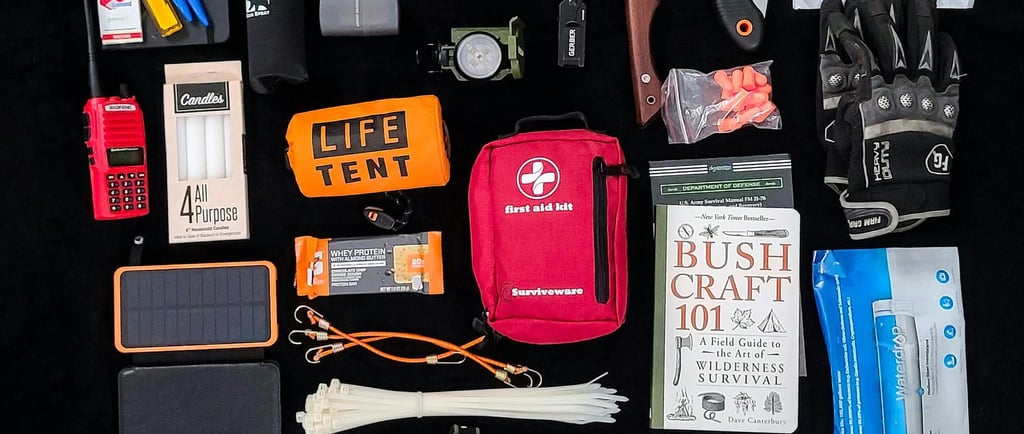Scavenging Gear from Abandoned Military Sites
WAR & CONFLICT SURVIVAL


Why Military Gear Is Valuable
In war zones, military equipment is often superior to civilian supplies. Helmets, vests, sturdy boots, and durable packs are designed for survival in hostile environments. Abandoned sites can provide these resources, but they also come with extreme risk. Knowing how to scavenge carefully may give you an advantage, but reckless searching can cost your life.
Assessing Risk Before Entering
Military sites are rarely truly abandoned. Even if they look empty, they may be monitored, mined, or revisited. Before approaching, observe from a distance. Look for fresh tracks, smoke, or movement. If you hear machinery or voices, stay away. Entering blindly is one of the most common mistakes survivors make.
Recognizing Hidden Dangers
Abandoned bases or vehicles may contain traps. Mines, tripwires, or unexploded ammunition can be hidden beneath debris. Never rush into buildings without checking the ground carefully. Use a stick to probe suspicious areas before stepping. If something looks recently disturbed, such as fresh soil or broken doors, assume it may be dangerous.
Prioritizing What to Collect
Military sites can overwhelm you with choices, but not everything is worth taking. Focus on protective gear like helmets, vests, and boots first. Look for durable clothing that blends into the environment. Backpacks, water containers, and ration packs are highly valuable. Tools such as knives, shovels, or multitools often prove more useful than weapons if you lack training or ammunition.
Handling Weapons With Caution
Finding firearms may seem like a stroke of luck, but they can be more burden than benefit. Without proper knowledge, a weapon can jam, misfire, or give away your position. Ammunition is often scarce or mismatched. If you take a weapon, learn its basic operation and keep it hidden unless absolutely necessary. Sometimes, a sturdy stick or improvised spear is safer to rely on than a gun you cannot use effectively.
Looking for Medical Supplies
Military kits often contain bandages, disinfectants, and painkillers. These are priceless in survival. Field dressings, tourniquets, and antiseptic wipes extend your ability to treat wounds. Even small finds, such as disinfectant tablets, can change your chances of survival dramatically. Prioritize sealed, undamaged medical supplies above all else.
Food and Water Sources
Rations are designed to last long, making them excellent for survival. Even if expired, many military rations are still edible in emergencies. Water bottles or canteens may also be found, though always clean them before use. Cooking equipment, stoves, or mess kits are lightweight and practical for daily survival tasks.
Using Abandoned Vehicles
Military vehicles may hold tools, spare parts, or fuel. Be extremely cautious, as some may be booby-trapped or targeted by others. Do not attempt to drive one unless you know how to operate it safely and understand the risks. Often, scavenging small items such as batteries, cables, or tarps is safer than trying to claim the entire vehicle.
Urban Versus Rural Sites
Urban military posts may contain more supplies but are also more likely to be monitored. Rural sites, such as outposts or checkpoints, may be less guarded but harder to reach. Always weigh distance, risk, and potential reward. Sometimes a small cache of clothing or medical items is more valuable than risking your life for a large stockpile.
Mistakes That Lead to Disaster
Greed is the biggest danger when scavenging. Taking too much slows you down and makes you a target. Another mistake is failing to conceal what you found—walking out with obvious gear signals to others that you carry valuable items. Noise, rushing, and ignoring signs of traps also lead to fatal outcomes.
Making Military Finds Work for You
When scavenged wisely, military gear strengthens your ability to endure. Protective clothing, medical kits, and durable food all give you an edge. The key is caution: observe, prioritize, and avoid greed. A few carefully chosen items can keep you alive, while reckless scavenging can end survival entirely.